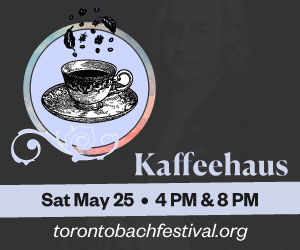There is always a threat that productions of opera come to resemble a kind of museum. Companies see the productions of new works as a risk, while Carmen and La Traviata will always fill the house. Fortunately Tapestry Opera is one of several companies that focus on the production of new work.
The myth of Medea is largely known through the play by Euripides. A number of operas have dealt with it; the best known are those by Cavalli (1649), Charpentier (1693), Cherubini (1797) and Mayr (1813). In the myth Medea has, through her arts, enabled Jason to accomplish various heroic deeds but now Jason wants to desert her in order to marry the daughter of the King of Corinth. Medea is beside herself and contrives to kill her rival, her rival's father and her own children. The Tapestry version by Marjory Chan departs from Euripides in a number of ways: the setting is contemporary and the King of Corinth has become the President of an unnamed country running for re-election; Medea's rival does not appear on stage in Euripides' play and is not even named (she is called Glauce in other versions of the myth), whereas in Chan's version the conflict between her and Medea is at the centre; in the Euripides Jason's infidelity is less important for Medea than her fear that she, a non-Greek woman, will be banished from Corinth, whereas in Chan's version her anger at being supplanted is central.
The music in M'dea Undone is by Scottish composer John Harris and these performances constitute a co-production with Scottish Opera. The director is Tim Albery; the conductor Jordan de Souza; the main roles are very well sung by Lauren Segal, mezzo (M'dea), Peter Barrett, baritone (Jason), James McLean, tenor (President) and Jacqueline Woodley, soprano (the President’s daughter, here called Dahlia). The use of a vocal quartet is well judged and the contrast between Segal's rich mezzo and Woodley's lyric soprano is especially effective. The instrumental parts are played by a small string orchestra, with additional electronic music. There is a telling contrast between the full-blooded sung dialogue and the understated orchestral parts.
One of the interesting things about this production is that it is staged not in a conventional theatre but in the Evergreen Brick Works, just off the Bayview Extension. The acoustics are excellent and the space is well used. The first performance was on May 26; others will follow on May 27, 28 and 29.



